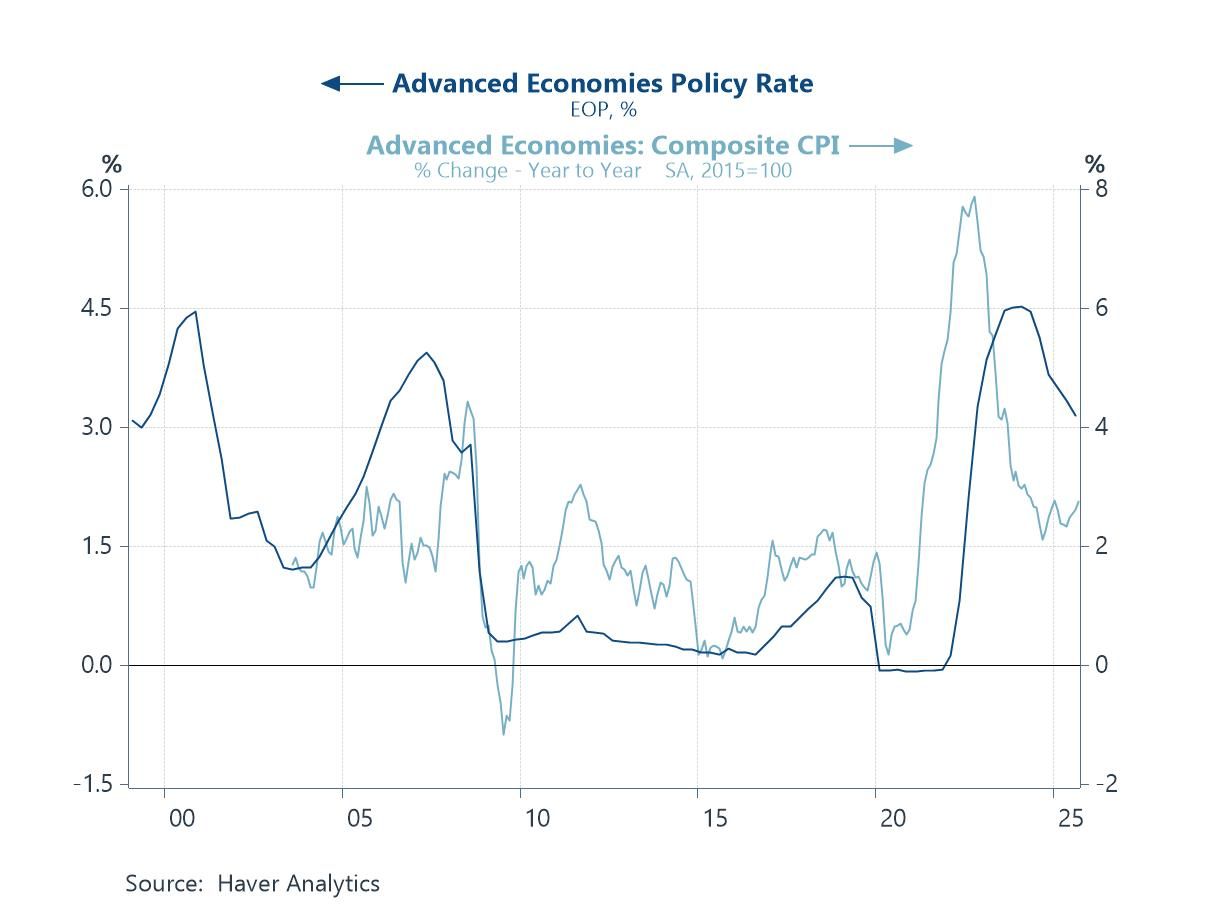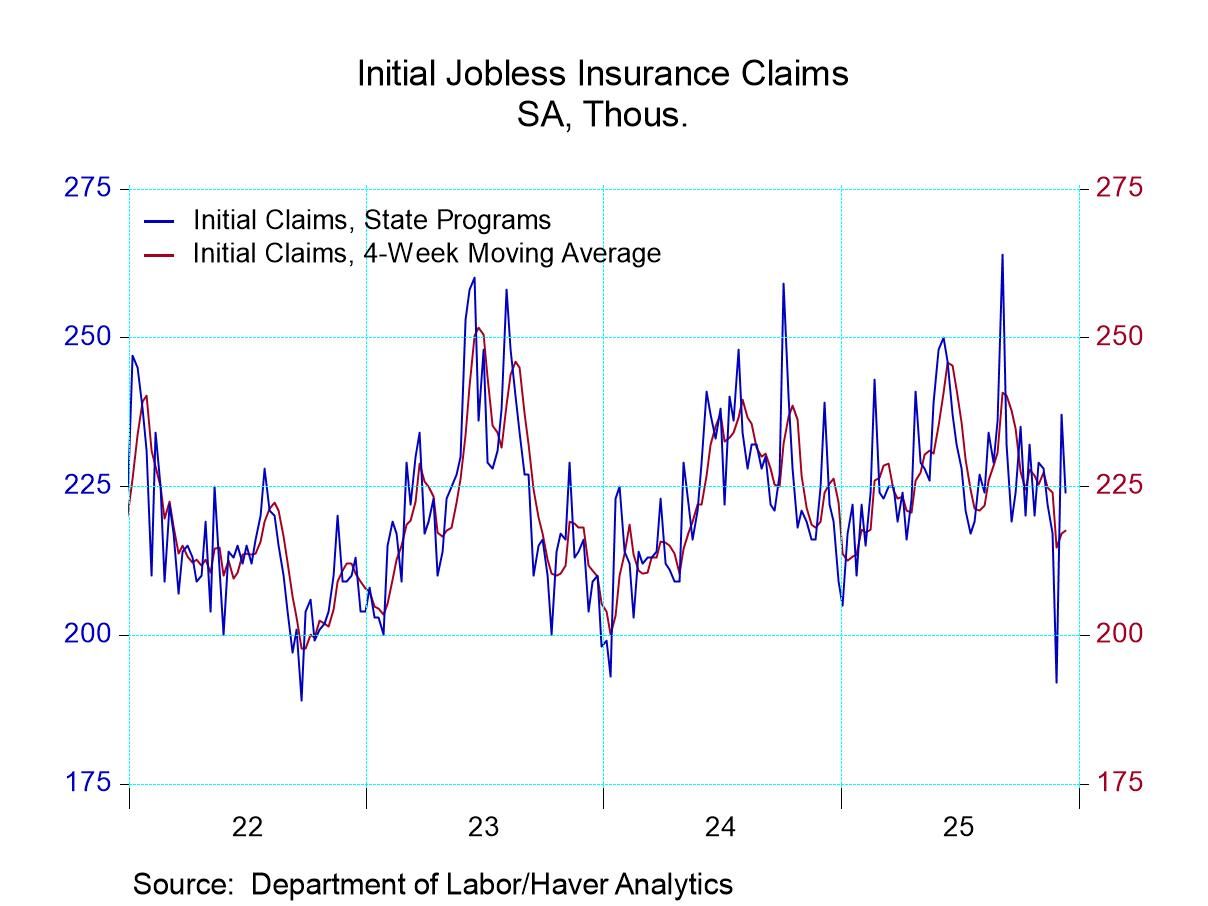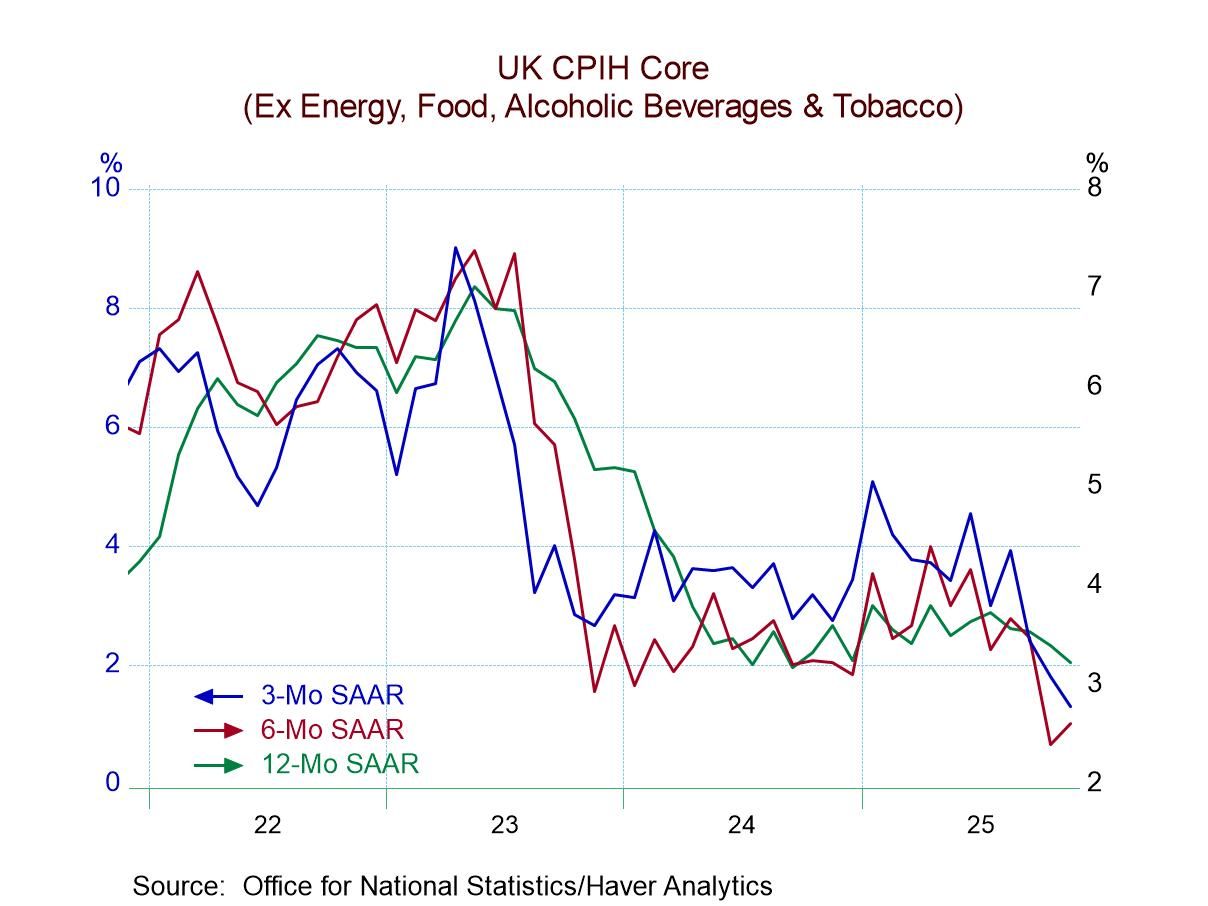 Global| Mar 08 2021
Global| Mar 08 2021Economy Watchers Index Improves as Outlook Spurts
Summary
The economy watchers current index improved smartly to 41.3 in February from 31.2 in January as the outlook index jumped to 51.3 from 39.9. The outlook index (above a raw score of 50 in diffusion terms) now has more optimism than [...]
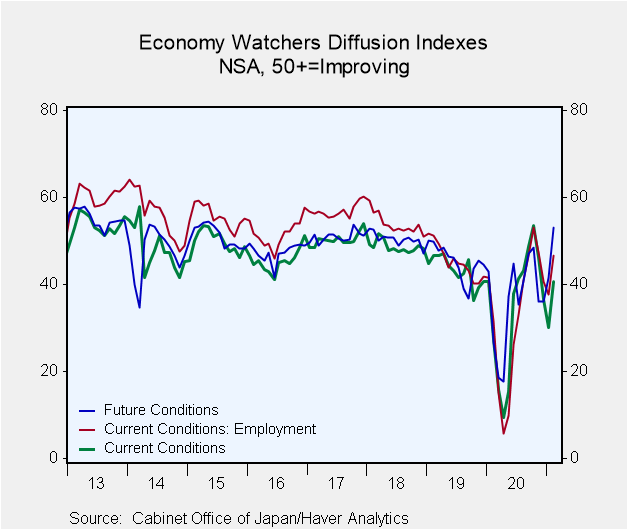 The economy watchers current index improved smartly to 41.3 in February from 31.2 in January as the outlook index jumped to 51.3 from 39.9. The outlook index (above a raw score of 50 in diffusion terms) now has more optimism than pessimism and resides in the 77th percentile of its queue of values back to 2002. The current index sits below its median and is still weak with only a 20.9 percentile standing (lower one-fourth; nearly lower one-fifth). Despite the jump, the February current index is still net lower (albeit by a small margin) over three months and over six months; over 12 months it is higher by 13.4 points. In contrast, the leap in the future index vaulted the outlook index well out of its 14th percentile standing last month to a standing that is a top-one quarter standing in its historic queue of data. Even though the current economy is not firing on all cylinders, Japan's optimism is growing.
The economy watchers current index improved smartly to 41.3 in February from 31.2 in January as the outlook index jumped to 51.3 from 39.9. The outlook index (above a raw score of 50 in diffusion terms) now has more optimism than pessimism and resides in the 77th percentile of its queue of values back to 2002. The current index sits below its median and is still weak with only a 20.9 percentile standing (lower one-fourth; nearly lower one-fifth). Despite the jump, the February current index is still net lower (albeit by a small margin) over three months and over six months; over 12 months it is higher by 13.4 points. In contrast, the leap in the future index vaulted the outlook index well out of its 14th percentile standing last month to a standing that is a top-one quarter standing in its historic queue of data. Even though the current economy is not firing on all cylinders, Japan's optimism is growing.
...But the virus is still a problem
Japan's Tokyo (plus Kanagawa, Saitama and Chiba) lockdown has been extend for two weeks. In Japan, there is no authority to order a lockdown so this is a request made to businesses, especially restaurants and bars to voluntarily close at 8 PM. Japan's infections and deaths are riding a declining trend, but the current levels of infections and deaths are not low enough to please Japanese officials. And Japan has a new variant of its own circulating that has health authorities vigilant. Japan has begun vaccinations but it has only one vaccine, Pfizer, approved so far. Other approvals are pending. PM Yoshihide Suga is urging people to not engage in large gatherings in the meantime.
It is not clear why Japan's outlook index has been rising so sharply. But China is reporting a brisk pick up in exports and there seems to be an expansion of global trade and growth underway even as the virus lingers. Even though vaccines have not ‘worked their magic yet' in large numbers, that they are being employed and making progress is giving consumers heart.
Making progress
Compared to a year ago, the current and outlook indexes and all their subcategories are higher on balance. The six-month change compared to the change over 12 months is lower for all components in both indexes. However, for the current index industries plus the current index itself show net backtracking over six months. The current three-month change is more complicated: the current index itself is net lower and six of its sub-indexes are net lower as well, but three of them decay by less over three months than they did over six months. The future index in contrast shows only housing with a weaker three-month gain than its six-month gain. For most categories, the lion's share of the boost came in February.
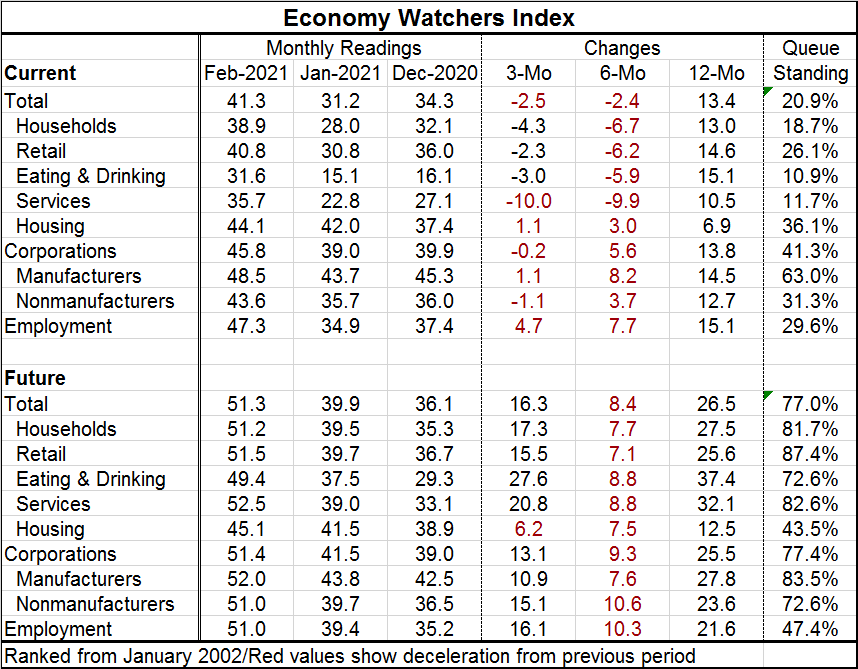
Movements are pretty much across the board
The standings data for the various components echo what we see in the headlines. For the current survey, all readings are below their historic median except for manufacturing which is a sector that everywhere in the world is outperforming services and construction. There are (at least) two reasons for this. One is that services industries are shuttered so manufacturing is able to get back to business while services cannot. The second is a related issue that with the services sector shut or impaired, consumers seeking to spend their support monies have only one place to spend it and that is on goods, again favoring the manufacturing sector.
Summing up
Japan has extended its lockdown for another two weeks beginning two days ago; this lockdown will extend through March 21. However, there are signs that conditions are improving and some worry that in two weeks Japan's infection trends may not be low enough to abandon the lockdown. Japan is also trying to reduce the incidence of infection to make the country safe for resumption of the once-delayed Olympics.
Robert Brusca
AuthorMore in Author Profile »Robert A. Brusca is Chief Economist of Fact and Opinion Economics, a consulting firm he founded in Manhattan. He has been an economist on Wall Street for over 25 years. He has visited central banking and large institutional clients in over 30 countries in his career as an economist. Mr. Brusca was a Divisional Research Chief at the Federal Reserve Bank of NY (Chief of the International Financial markets Division), a Fed Watcher at Irving Trust and Chief Economist at Nikko Securities International. He is widely quoted and appears in various media. Mr. Brusca holds an MA and Ph.D. in economics from Michigan State University and a BA in Economics from the University of Michigan. His research pursues his strong interests in non aligned policy economics as well as international economics. FAO Economics’ research targets investors to assist them in making better investment decisions in stocks, bonds and in a variety of international assets. The company does not manage money and has no conflicts in giving economic advice.



